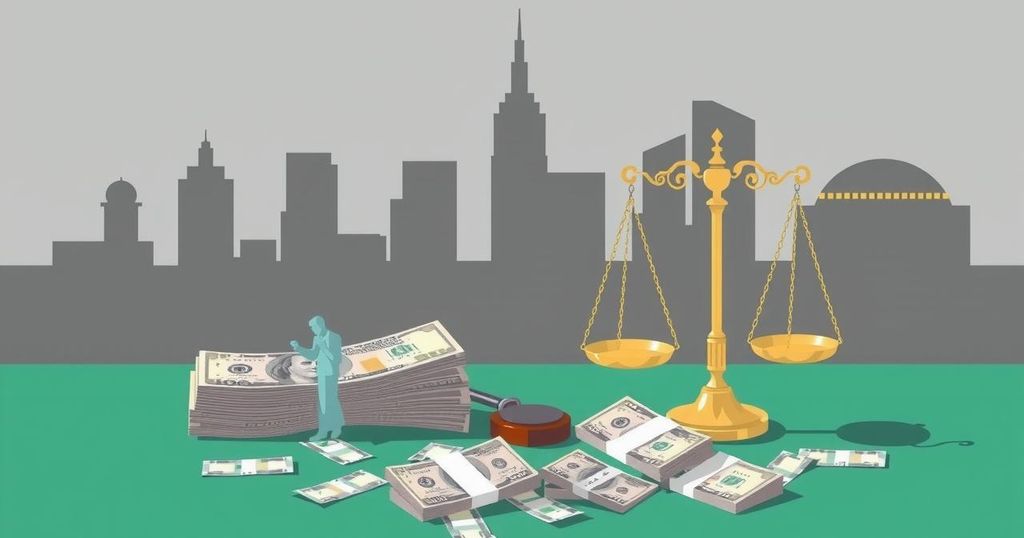The Role of Money in Nigeria’s Democracy Ahead of the 2027 Elections

As Nigeria prepares for the 2027 general elections, concerns arise over the influential role of money in politics undermining democracy. Politicians are engaged in negotiations, while electoral reform is sidelined. Former governor Achike Udenwa has highlighted the issue of financial inducements that compromise electoral integrity and call for strengthened oversight and reform efforts.
As Nigeria approaches the 2027 general elections, the political landscape is marked by intense negotiations among politicians. President Bola Tinubu is striving for a second term amidst plans by opposition parties to unite against him. However, the focus on democracy appears overshadowed by power struggles, as electoral reform remains a low priority for Nigerian politicians.
Former Imo governor Achike Udenwa has expressed concerns regarding the influential role of money in politics, deeming it a significant threat to free and fair elections in Nigeria. He highlighted that substantial financial resources often determine electoral success, stating, “Unfortunately, our society has grown to such a level where if you say vote for me, I am no longer asking what you can do. If I don’t vote for you, you can buy your way through if you have the right amount of money.”
Evidence of financial inducements has emerged, where voters receive incentives for their votes. The ‘see and buy’ tactic involves voters displaying their marked ballots to prove compliance in exchange for cash or gifts, undermining democracy and promoting unqualified individuals to office. Moreover, issues of complicity extend to the judicial system with some legal practitioners implicated in electoral misconduct.
Mahmood Yakubu, Chairman of the Independent National Electoral Commission, has urged stricter regulations against delegate buying during primaries, noting instances of foreign currency bribes. The escalating costs of nomination forms have exacerbated the problem, with a 300 percent increase in presidential nomination form costs observed from 2015 to 2023, while the law allows limited spending that often contrasts sharply with actual campaign expenditures.
While the prosecution of corrupt election officials represents progress, it remains insufficient against the backdrop of widespread electoral infractions. Reports, such as those from the Commonwealth Observer Group, suggest that electoral reforms have not adequately addressed persistent issues.
To mitigate the effects of money in politics, Nigeria could adopt strategies akin to those in the United States, where contribution limits are enforced and party funding is managed through membership dues. The establishment of an electoral offences commission is essential to enhance monitoring of campaign financing. Furthermore, civil society organizations play a crucial role in advocating for ongoing electoral reforms.
The encroaching influence of money in Nigeria’s democracy poses substantial threats to electoral integrity, as evidenced by systemic bribery and corruption. While positive measures are being initiated, such as the prosecution of corrupt officials, comprehensive electoral reforms and stronger oversight mechanisms are essential for ensuring free and fair elections. Collaboration among political parties, regulatory bodies, and civil society organizations will be vital in restoring trust in the democratic process.
Original Source: punchng.com







